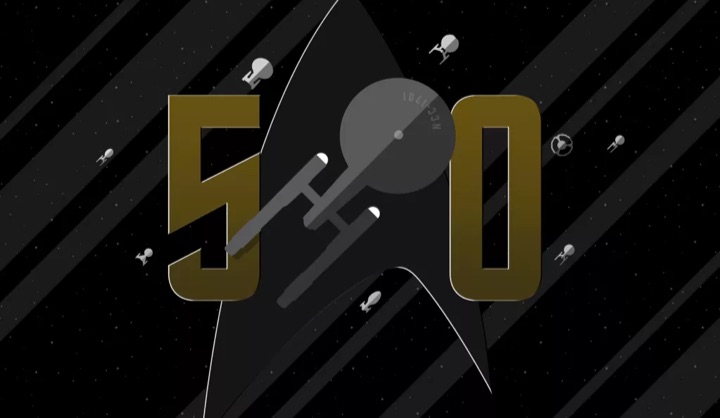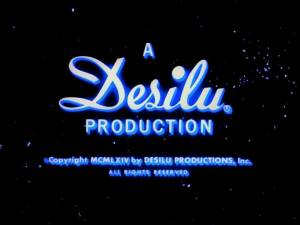Table of Contents
Fact Check
Axanar's Claims in New Captain's Logs
After a four-month pause in publishing his Captain’s Logs, Axanar producer Alec Peters resumed near-daily postings in September 2016, discussing the pending copyright infringement lawsuit faced by the production and attempting to reassure donors about the film and their long-delayed perks.
AxaMonitor is fact-checking each log.
Suit Spoils Star Trek's 50th
In his September 16 log, Peters portrayed the lawsuit as besmirching Star Trek’s 50th anniversary:
How awesome would it have been if, as we planned, Axanar would have been released last week as a celebration of our love for this franchise? … The biggest story of the year around the 50th anniversary is how CBS is suing its fans.1)
True or False?
PARTLY TRUE Release Date. According to director Robert Meyer Burnett, at least Part 1 of the planned four-part Axanar film would have been released on the actual date of Star Trek’s 50th, on September 8.2) Once it became clear Axanar’s Indiegogo campaign would not raise the additional $1.3 million needed to shoot the entire film at once, Peters decided to split the production into four episodes, with sufficient funding in hand to produce the first two.
MOSTLY FALSE Biggest Story. Peters’ claim that “the biggest story” surrounding the 50th anniversary is the Axanar lawsuit is an opinion not borne out by examination. A search on Google News with the keywords “Star Trek 50th anniversary” and even “Star Trek” fails to reveal a single Axanar-related headline in the first several pages of results. Only one article in the search, a GQ piece on the August 2016 Star Trek Las Vegas 50 convention, mentions Axanar and its lawsuit — buried deep in the article.3)
The io9 article Peters did cite to criticize his lawsuit opponents, “CBS and Paramount Royally Screwed Up Star Trek's 50th Anniversary,” failed to mention Axanar at all.
David and Goliath
An important feature of Peters’ narrative is the characterization of CBS and Paramount as huge corporate Goliaths trying to intimidate puny fans who want nothing more than to demonstrate their love for Star Trek. Peters wrote:
I am sure when they decided to file the lawsuit on December 29th, 2015, CBS and Paramount thought I would buckle and this would all be over in a matter of weeks. I mean, I was just some fan producing a fan film. Who could have foreseen that I would go out and get one of the top [intellectual property] litigation firms in the country to represent us pro bono? They assumed I would just say “Uncle!”4)
True or False?
 FACT CHECK is an AxaMonitor series examining claims made with regard to the Axanar case, chiefly Alec Peters’ blog posts, interviews and public announcements. Read the series »
FACT CHECK is an AxaMonitor series examining claims made with regard to the Axanar case, chiefly Alec Peters’ blog posts, interviews and public announcements. Read the series »
PARTLY TRUE Just Some Fan. Peters’ characterization of himself and his project as “just some fan producing a fan film” is at odds with how he formerly portrayed Axanar until he was sued. Peters explicitly eschewed the term fan film for Axanar, instead describing it as “the groundbreaking … first fully professional, independent Star Trek film.”5)
TRUE Top Law Firm. Peters did successfully hire a prominent IP firm, Winston & Strawn, to represent Axanar pro bono. Axanar is still liable, however, for fees and costs outside the hourly rates of the lawyers working on its case.
MOSTLY FALSE Crying Uncle. The notion that CBS and Paramount expected Peters to fold immediately after they filed suit in December 2015 is mostly supposition based on some lack of specificity in the original legal complaint, swiftly rectified by the plaintiffs in an amended filing. The fact is that Peters simply cannot know what the plaintiffs might have thought about how he would react to the suit. Peters’ assertion that he unexpectedly rose up to find powerful allies to fight back is simply a narrative used to attract public support.
True Owners of Trek?
Another emerging narrative in Peters’ recent public statements questions whether CBS and Paramount are the “true owners” of Star Trek, attempting to cast doubt (so far, with no evidence) on 50 years of copyright transfers as Trek’s ownership moved from Lucille Ball’s Desilu Studios to Paramount, Viacom and CBS, and claiming “the fans” are the ultimate owners:
While CBS and Paramount may be the temporary owners of the franchise that Lucille Ball championed 50 years ago, it is the fans who carry the torch and make sure Star Trek endures.6)
True or False?
MOSTLY FALSE Valid copyright. The attempt to question the validity of CBS and Paramount’s copyrights first occurred in Axanar’s failed motions to dismiss the lawsuit against it. The legal strategy here was to find one or both studios lacked standing to bring suit. Judge R. Gary Klausner instead said, “It is undisputed” the studio had standing for its copyright suit.7)
MOSTLY FALSE True Owners. The notion that CBS and Paramount are merely temporary owners stretches credulity given that their ownership is no less than that of any other intellectual property. Instead, Peters’ claim appeared to be more of an attempt to bolster his supporters’ hopes. Is J.K. Rowling a “temporary owner” of Harry Potter? Is Marvel of Spider-Man? Is Disney of Darth Vader? Yes, all those properties will eventually pass into the public domain, but what truth this idea may claim rests upon a historical perspective of more than one century. The claim offers Peters’ supporters no realistic hope that Axanar could ever be produced. 
Keywords



